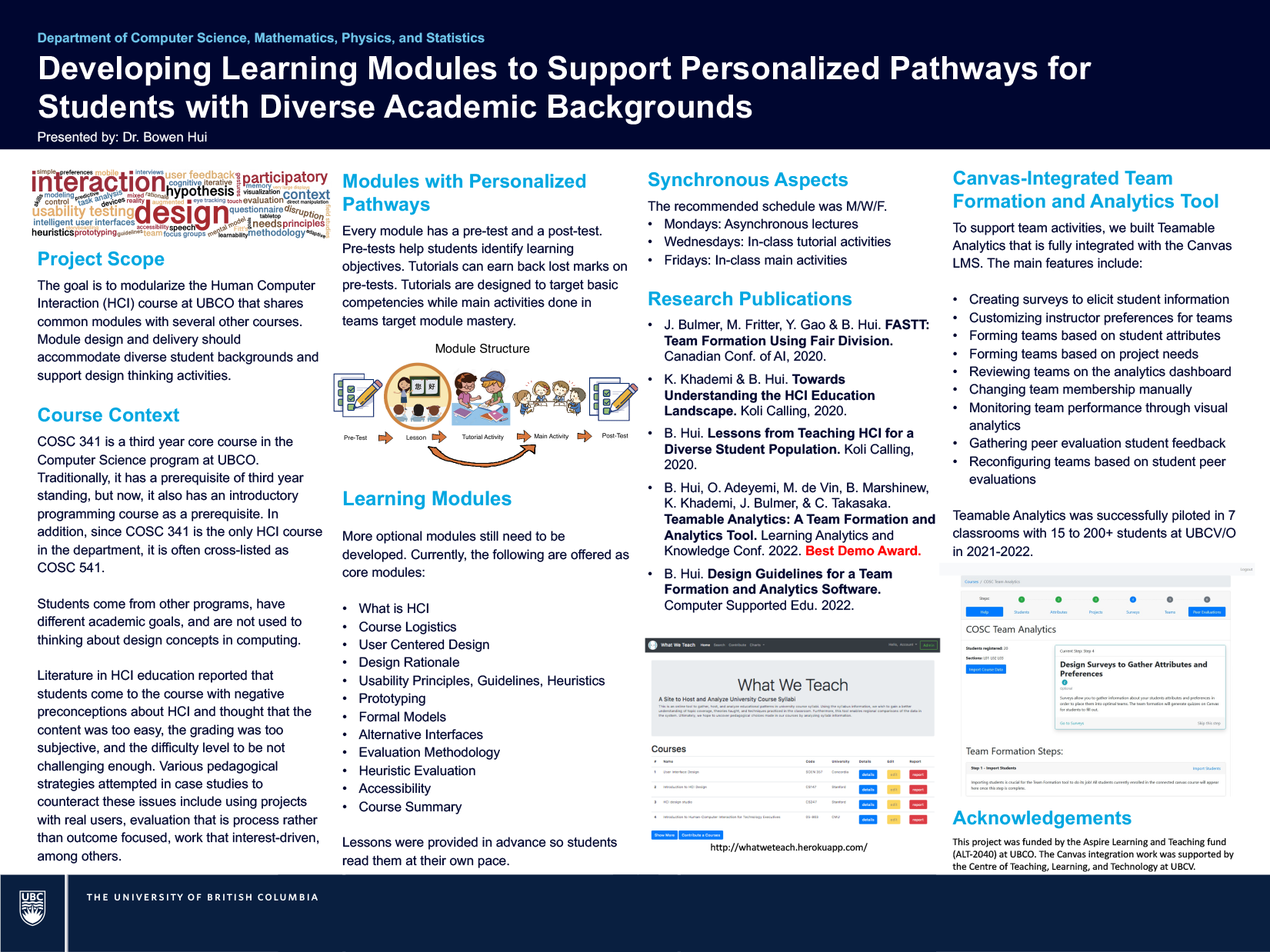Interdisciplinary learning provides an exciting opportunity for students to develop new skills and connect ideas and information from different skill sets to work harmoniously towards a single goal. However, interdisciplinary courses can be challenging for instructors to offer a great experience for every student. That was the experience of Dr. Bowen Hui, associate professor in the Irving K. Barber Faculty of Science, teaching Human-Computer Interaction (HCI) — a course that attracts undergraduate and graduate students from many disciplines.
“The reason this course is so tricky is not that the content itself is necessarily that hard, but it’s making the content relevant to students with a wide range of prior experience and interests,” Hui explains. The results from surveying other institutions reveal that the HCI course is often “taught by so many disciplines—including design, engineering, informatics, and computer science.”
This challenge led Dr. Hui to bring together interdisciplinary collaborators from the Faculty of Creative and Critical Studies, the School of Engineering, School District 22 and UBC Vancouver to support “Developing Learning Modules to Support Personalized Pathways,”— an ALT-2040-funded project seeking to create flexible learning modules for the HCI course.
The original proposal was designed with a three-phase implementation. However, as they began the project in 2020, they quickly transitioned to flipped delivery in the project’s first year due to the COVID-19 pandemic.
“Jumping straight into the flipped environment was scary. I didn’t know what the reaction was going to be,” says Hui. “I was shocked at how well received the new course was. The students really loved the independence and having a choice in their learning.”
Each learning module begins with a pre-test to help students identify the learning objectives and areas of improvement. Students with prior knowledge can skip ahead, while those learning the content for the first time can make up lost marks on the pre-test by doing a tutorial activity.
While the project explored personalized course modules for interdisciplinary courses, Hui also experimented with making the course content more digestible for a new generation of students.
“Reading styles have changed over the years. Students are more used to reading shorter snippets like online blogs, so I structured content in the same way. The readings appear one section at a time, and the sections are generally about one to two paragraphs long. There are multiple choice questions at the end of each section to ensure students understand the key concepts and get feedback right away,” says Hui. “It’s all part of the process of transforming learning to meet the need of students with diverse backgrounds.” Students with language barriers and those who prefer a more reflective rather than an active learning approach have reported that they prefer how the material is delivered in this course over traditional, lecture-based courses.
Hui advises those considering applying for ALT-2040 funding to get in touch with fund administrators early in the process. “By working with the Provost office, you can get a better idea of how your project ties in with other research efforts and funding priorities.”
